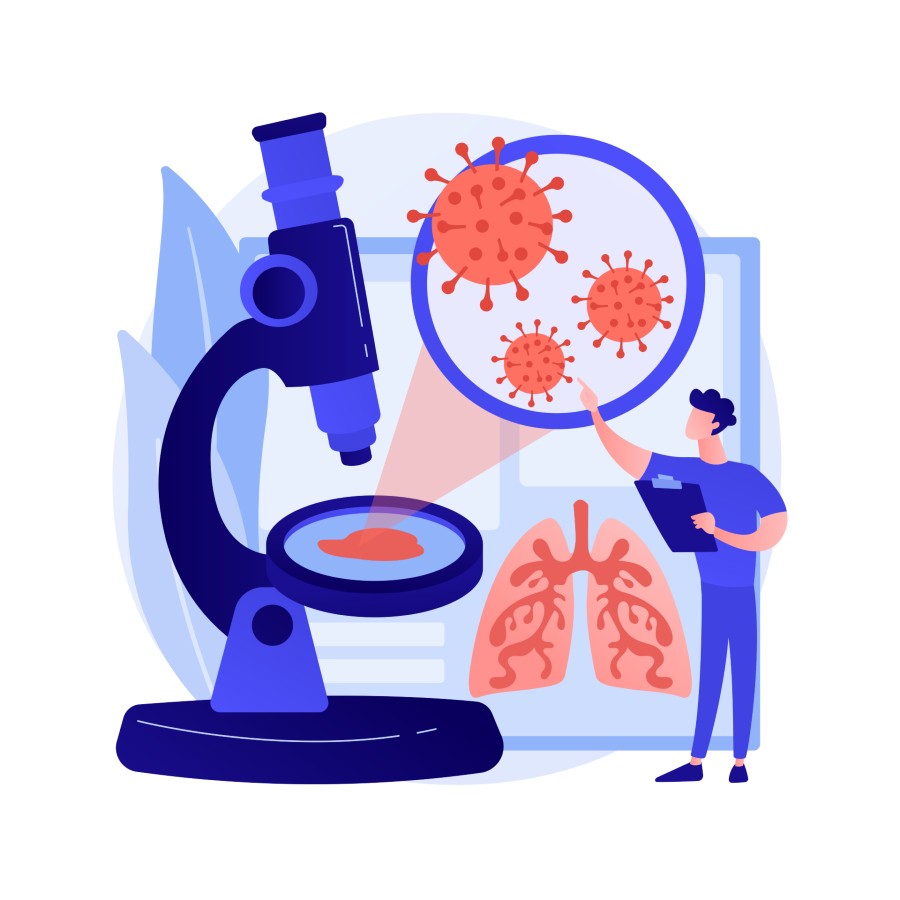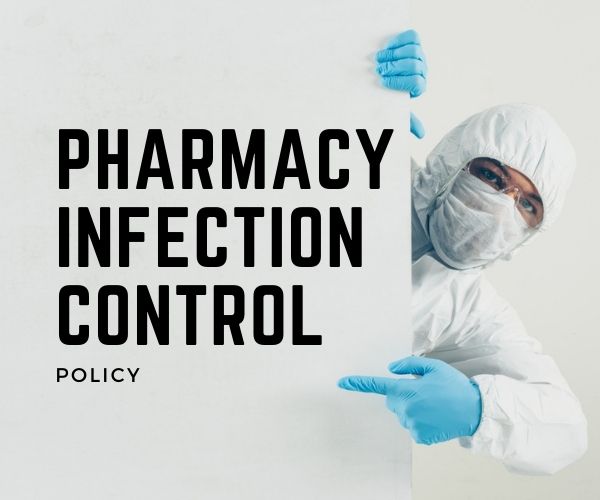What is pharmacy infection control?
Pharmacy infection control is part of the pharmacy policy and procedures it’s being incorporated with the infection control department.
As usual with most of the policies sample posted here, there is some default data that should be listed in the policy header and footer. Below are some of the info that you need to include in your Pharmacy infection control policy header:
- Hospital name, obviously.
- Pharmacy department operational policy and procedure, this header just to notify the reader that the following policy belongs to which department.
- Policy code or Number, for filing/indexing purposes.
- Edition Number, same purpose as above.
- Title of the policy, in our case; it would be pharmacy infection control.
- Important dates [date reviewed, approved date, effective date and due for review date].
- Applies to [department] in this case it should be pharmacy department
- And last but not least, you’ll mention the nature of the policy, whether it’s going to be multidisciplinary or department specific. (Multidisciplinary policy)

Pharmacy Infection Control Policy
Definitions
Infection control is the discipline concerned with preventing infection. It is an essential part of the infrastructure of health care.
Purpose
To protect personnel and patients from exposure to infection.
Policy
Measures are taken to ensure that personnel and patients are put to a minimum risk of transmission of infection.
Procedures and responsibilities
Pharmacy Department / Infection Control Department
General Infection Control Activities:
Infection risks to patients are related to:
- Bacteremia from contaminated products.
- Infection / colonization of mucous membrane.
- Local abscesses from injection of contaminated Solutions.
- Personnel are at minimum risk of infection unless involved in clinical rounds or discharge counseling that requires patient contact.
Monitoring of infection control activities:
- Participation in antimicrobial utilization reviews.
- Coordination with infection control and physician officer with regard to provision of vaccines for immunization program, medications for exposures and treatment of, employees.
- Microbiological surveillance as indicated by the infection control officer.
- Participation in antibiotic usage programs by providing data on usage patterns to the infection control officer.
- Coordination with infection control officer in orientation & counting education of all pharmacy employees regarding infection control standards.
Pharmacy Department / Infection Control Department / Housekeeping Department
- All work counters shall be swabbed with 70% isopropyl alcohol daily.
- All employees shall follow accepted good grooming and hygiene practices. All employees shall wash their hands with soap and water prior to handling medication.
- Employees with active respiratory with dermatological diseases shall not come in contact with medications in the pharmacy.
- All shelves and other drug storage areas shall be cleaned regularly to keep bottles and packages dust free.
- The pharmacy floor shall be mopped daily with appropriate disinfectant.
Pharmacy Department / Infection Control Department / Nursing Department
Handling Medications:
- All medications shall be handled with sanitary, clean techniques, using aseptic techniques where applicable.
- All prescription compounding other than intravenous admixture, irrigating solutions and hyperalimentation solution shall be done in the designated compounding areas.
- All sterile preparations shall be compounded under laminar flow using aseptic techniques.
- Only packaged medications with lot numbers and expiration date identification may be returned to stock when no longer needed.
Pharmacy Department / Biomedical Department
Laminar Flow Hood:
- All lVs shall be prepared under the laminar flow hood using aseptic technique.
- All profiling of syringes and preparation of medication dilutions shall be done under the laminar flow hood.
- The laminar flow hood shall have inside area swabbed with 70% alcohol at least once daily.
- The laminar flow hood shall be turned on at least 30 minutes prior to use.
- The laminar flow hood provided for mixing lVs and TPN in the Inpatient Pharmacy must be checked for operational efficiency and certified by an inspector qualified under National Sanitation Foundation [NSF] Standard at least every twelve months.
- The Laminar air flow should be checked monthly by Biomedical Department and a copy of completed checking form will be kept in pharmacy.
- Personnel preparing solutions when admixing large batches of solutions should wear gloves, gown and mask and work at least 6 inches inside the hood.
Pharmacy Department
intravenous Admixtures:
- All items required to proper IV admixtures shall be assembled under the laminar flow hood prior to compounding.
- All solutions shall be serially numbered to indicate order preparation and administration.
- Aseptic Techniques:
- All vial stoppers shall be swabbed with alcohol prior to entry with needle.
- All sterile items shall be left intact with protective covers prior to use.
- Samples of sterile products will be routinely tested to insure that the personnel involved have followed proper aseptic technique.
Pharmacy Department / Nursing Department
Expiration Dates:
- Any prepared solution shall bear an expiration date of no longer than that of the earliest expiring component.
- If the final solution/irrigations contains no components bearing expiration dates, a maximum expiration time of 24 hours shall be assigned.
- Those hyperalimentation solutions containing all additives including vitamins 81 trace elements shall bear an expiration date of not more than 48 hours.
- No expired solutions shall be dispensed.
Nursing Department
Handling of solutions by nurses:
- All IV irrigation solutions shall be handled with aseptic technique.
- All stoppers shall be swabbed with alcohol prior to introducing needles or IV sets.
- All solutions for specific patients shall be administered in a serial sequence.
- Nurses should make every effort to keep not more than 24 hours supply of solution on hand for a specific patient.
- No expired solutions shall be used.
- All discontinued and/or expired solutions shall be returned to the Pharmacy for disposal.
- Any remaining solutions that have been in the room of a patient in isolation shall be placed in infectious waste bag (yellow bag). (all materials in Yellow garbage bags to be removed by housekeeping staff and send to infectious storage area)
Pharmacy Department / Nursing Department / Housekeeping Department
Storage:
- All IV irrigating solutions shall be stored at room temperature (18°C-25°C) in a sanitary area, free from dust and other contaminations.
- All opened solutions for near future use shall be stored in refrigerator between (2°C-8°C) with opening and expiry date unless otherwise indicated. (Refer to multi Dose Pharmaceutical Expiration policy)
- All light sensitive solutions shall be protected from light and labeled as such.
- All used sharps (Needles, vials, ampoules, and glass bottles) are placed in yellow sharp box, to be removed by housekeeping staff to be send for incineration.
- Full documentation for the procedure will be done. (See Attachment)
Attachments
- Attachment A-Sharp box form.
- Attachment B-Form for documentation of infection control procedure in unit dose area/lab/others
- Attachment C-Form for documentation of infection control procedure in IV Room.
You’re almost done and pharmacy infection control policy is almost ready, what’s remaining is just few basic policy layout filling.
- References.
- Revisions: Revised as per timescale.
- Distribution: Here you should mentioned where this policy will be sent, and which departments will get a notification for it:
- Hospital & Medical Director.
- Nursing Director.
- Infection Control Officers.
- Biomedical Engineering In-Charge.
- House Keeping Department.
- Pharmacy Department.
- Signed originals is maintained in Manual & Indexing Office.
The policy is now finished, and it’s time to get proper signatures, whether your hospital is implementing an electronic signatures, or manual sign and stamp.
Need a specific policy! Get in touch with us to help you.





